endorsements
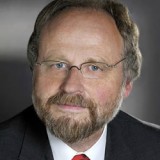
Prof Dr Heiner Bielefeldt
Former UN Special Rapporteur on Freedom of Religion or BeliefThe “Global Charter of Conscience” is a powerful document. I appreciate its enormous potential to inspire practical commitment on behalf of freedom of thought, conscience, and religion or belief and to contribute to a better understanding of human rights in general. In the spirit of the 1948 Universal Declaration of Human Rights (UDHR), the Charter underlines the universal validity of freedom of religion or belief as an inextricable part of a holistic human rights agenda in which civil, political, economic, social and cultural rights can mutually reinforce each other.
In a world in which “the challenge of living with our deepest differences has been raised to a new level of intensity,” freedom of religion or belief may be more important than ever for the development of a culture of respectful coexistence and open communication. I see the “Global Charter of Conscience” as a strong support in this on-going endeavour. May the Charter find many readers across continents, cultures and denominations.

Habib Charles Malik
PhD, LebanonThis is a unique and timely document that elaborates on the fundamentals of religious freedom as they have been enshrined in Article 18 of the Universal Declaration of Human Rights of 1948. That pivotal Article was written by my late father, Charles Malik, and adopted as is by the Human Rights Commission back in 1947. In it, the right to change one’s religion is clearly spelled out, as is the right to worship both in private and in public. The Global Charter of Conscience is an excellent and detailed follow-up to Article 18 and will hopefully serve as an international rallying point for all people concerned about protecting freedom of religious belief and conscience.
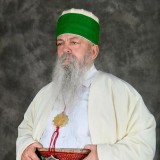
Hajji Dede Edmond Brahimaj
World Leader of Bektashi Muslim CommunityFreedom is a precious gift from God. No one should be a slave to others because God created us all free.
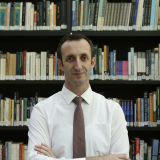
Dr. Genti Kruja
Secretary General of Albania Interreligious Council / Vice President of ENIB Religions for Peace EuropeThe “Global Charter of Conscience” comes at the right time, when today more than ever there is a need for tolerance and love, for dialogue and understanding for coexistence and respect for others. Although the world has known the greatest technological developments, unfortunately it still faces wars and conflicts, which often instrumentalize religious, ethnic and ideological differences, bringing suffering to millions of people and endangering the future of the new generation. Therefore, this Charter is an inspiration to contribute to world peace and the spiritual well-being of humanity.
Albania, although a small country on the world map, has shown that with its centuries-old history of interreligious coexistence and tolerance, it is a model, where five different religious communities know how to cooperate, together with their differences, for the common good of our society.
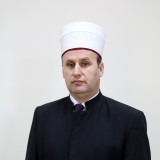
H. Bujar Spahiu
Chairman of the Muslim Community of AlbaniaThe Global Charter of Conscience is a necessary document in a world with different cultures, faiths and regimes. I believe in the freedom of the individual, such freedom that God of the universe himself gave to man. The freedom of thought, freedom of faith, freedom of education, of expression and criticism, freedom of movement and action are necessary and a basic right of people. As long as such freedom doesn’t hurt self or the other we must do everything to promote it. Everyone should contribute to protect and strengthen these universal principles of the rights pf people and in this context this Charter is an added value in furthering freedom thus I heartily endorse it.
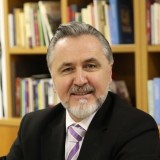
Dr. Ylli H. Doçi
Chairman of Inter-Religious Council of Albania (2022)This fresh restatement of wisdom culled through the millennia of human existence to preserve soul freedom is perhaps the last clarion call to prevent our generation plunging to disaster! The stakes are that high.

Vlady Raichinov
Vice-President of the Bulgarian Evangelical AllianceBuilding bridges, appreciating variety, sharing meals, fostering warmth, valuing human beings created in God’s image – these are instincts that carry incredible value in a world which is drifting into purposelessness and hopelessness. The Global Charter of Conscience is a tool in the right direction.

Sari Essayah
President of the Finnish Christian Democrats, former Member of the European ParliamentThe Charter calls for a new and deeper vision of freedom of thought, conscience and religion. These freedoms must be respected everywhere despite global challenges such as growing diversity and coexistence of different worldviews.
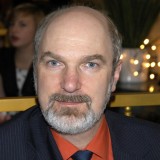
Prof Dr Thomas Schirrmacher
Director of the International Institute for Religious Freedom, Professor of Sociology of Religion, Secretary General of the World Evangelical AllianceThe right to freedom of thought, conscience, and religion always was at the centre, whenever in history human rights made progress. This sophisticated, yet clear charter puts this right back among the fundamental and global rights – a brave and timely act, if we want to preserve freedom and peace for the future.
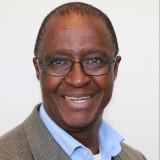
Prof N. Barney Pityana
President of Convocation of the University of Cape Town, former chair of the South African Human Rights CommissionI found the document very inspiring and timely. “Global Charter of Conscience” reflects much of my own thinking and development of ideas around Freedom of Religion and it gives authority to ones academic interests in this field. I am more than pleased to support this initiative.

Dr. David McIlroy
Barrister, Visiting Senior Lecturer in Law, SOAS, United KingdomFreedom of thought, conscience and religion is only secure when questions of ultimate concern can be debated civilly in the public square. This Global Charter is an important step towards upholding those freedoms in the twenty-first century.

Prof Dr John Warwick Montgomery
Professor Emeritus of Law & Humanities, University of Bedfordshire (UK), Barrister-at-Law (England and Wales), Avocat à la Cour (Barreau de Paris)The Global Charter of Conscience is an extremely important document and should receive the full support of those responsible for setting public policy and implementing it. In our present cultural climate there is widespread confusion between secularity (laudably favouring an open marketplace of ideas) and secularism (a worldview denigrating and often excluding viewpoints contrary to it). Freedom must be practiced with genuine civility, and the Global Charter can assist greatly in such a vital endeavour.

Étienne Lhermenault
Director of the Institut Biblique de Nogent-sur-MarneThe National Council of Evangelicals in France, a member of the European Evangelical Alliance and the World Evangelical Alliance, wishes, in the vein of the “fathers” of the evangelical movement, to contribute to defending freedom of thought, conscience and religion or belief for all. It is in the very name of our religious convictions that we consider this freedom as a fundamental good of all humanity, and an indispensable ferment for our societies. The Global Charter of Conscience has power to contribute instrumentally to promoting this freedom, and this is the reason why I am endorsing this text unreservedly.

Jonathan Chaplin
Director, Kirby Laing Institute for Christian EthicsThe Global Charter is a forceful, eloquent and timely reaffirmation of a fundamental right currently under serious threat wherever brutal authoritarian regimes fear the liberating power of human conscience. Living justly and peaceably with deep religious and moral difference is one of the world’s most demanding challenges and the urgency of this initiative to promote that goal could not be overstated.
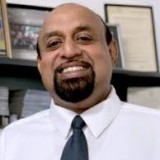
Rev. Godfrey Yogarajah
Executive Director Religious Liberty Commission of the World EvangelicalThe ‘Global Charter of Conscience’ is a visionary document which encompasses and expands the standards set out in the Universal Declaration of Human Rights. In an ever shrinking world where the freedom of thought, conscience, religion or belief are constantly challenged and often in conflict with the fast pace of change in every sphere of life, the Global Charter of Conscience places these fundamental freedoms and other wider human rights in the context of the challenges of our modern era, enhances our understanding of these rights and promotes practical action and commitment to their protection.
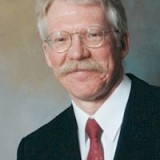
Dr. Thomas K. Johnson
World Evangelical Alliance Special Envoy for Engaging Humanitarian Islam, WEA Special Envoy to the VaticanSince the United Nations Universal Declaration of Human Rights (1948), there has been a developing group of thoughtful and humane documents affirming human rights in general and freedom of religion and conscience in particular. The writing of one more document in this process stands as an indictment of human nature: several decades of serious moral discussion has not yet had the needed impact on our behavior. We must carefully heed the call of the Charter to implement and cultivate these principles within the global public square. The alternative is continuing violence or even a clash of civilizations; let us listen and learn.

Knox Thames
Senior Fellow at the Institute for Global Engagement, Visiting Expert at the U.S. Institute of PeaceDiversity will be the reality and challenge of the 21st century. As the world becomes more inter-connected, with different philosophies and faiths interacting as never before, the Charter highlights a pathway towards peace for our increasingly multi-religious and multi-ethnic societies.
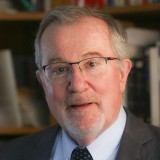
Dr Jean-Paul Willaime
Sociologist and Research Director, École pratique des Hautes Études (Sorbonne University, Paris, France)(endorsement text follows)

Dr Prof Patrice Rolland
Professeur agrégé of Public Law, Paris XII University (Val-de-Marne,France)(endorsement text follows)
